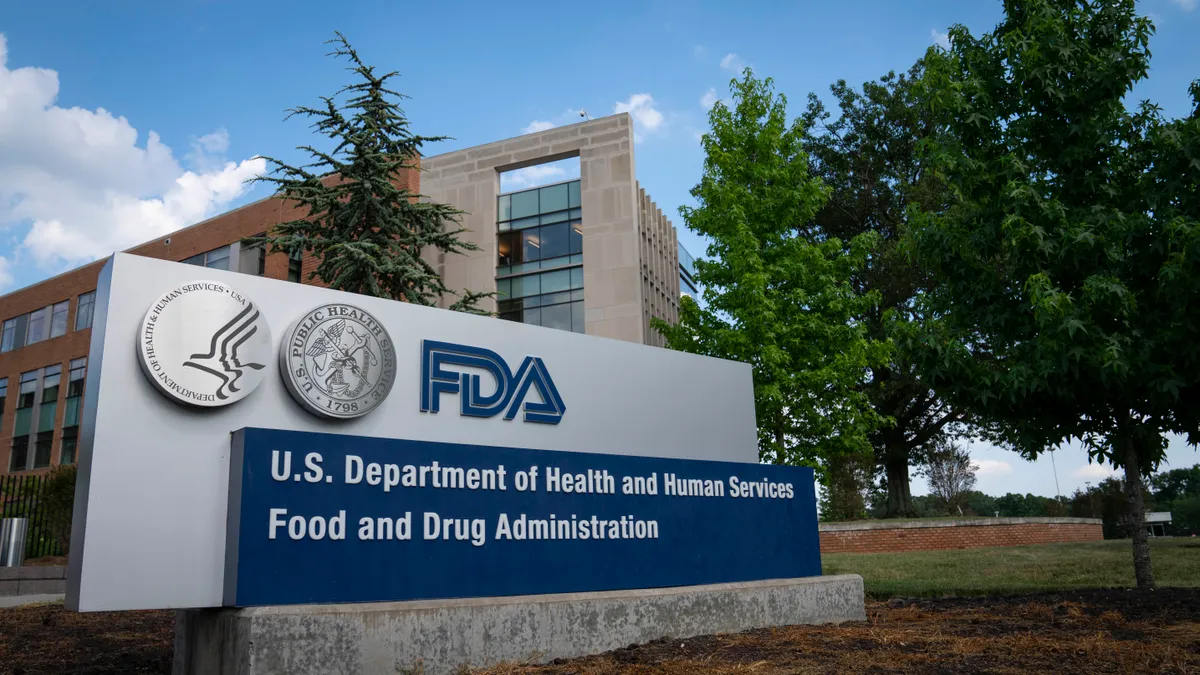UPDATE: April 8, 2024: The Food and Drug Administration issued import alerts for two medical device manufacturers as part of an investigation into plastic syringes made in China. The action allows the agency to detain products that appear to violate the Federal Food, Drug, and Cosmetic Act without an inspection or examination.
On April 3, the FDA announced an import alert for Jiangsu Caina Medical for not meeting device quality system requirements. A week prior, the agency also issued an import alert for Jiangsu Shenli Medical Production to prevent unauthorized products from entering the U.S.
Dive Brief:
- The Food and Drug Administration said Tuesday it has sent three warning letters related to its investigation into plastic syringes made in China.
- FDA officials are advising U.S. suppliers, consumers and healthcare organizations to immediately transition away from using plastic syringes made by two Chinese companies.
- Jeff Shuren, director of the FDA’s Center for Devices and Radiological Health, said in a statement further evaluation of the safety concerns has shown quality problems are “more widespread than originally known.” Shuren added FDA officials are “actively evaluating quality issues and performance testing failures” at another Chinese manufacturer.
Dive Insight:
The FDA began assessing the propensity for plastic syringes made in China to leak, break and otherwise suffer quality problems in late 2023. At that time, the agency advised against using plastic syringes made in China because it had received reports of quality issues associated with several manufacturers.
The warning letters reveal FDA inspectors visited U.S. sites run by Medline Industries and Sol-Millennium Medical beginning in December. Medline provides sterile and bulk non-sterile syringes, needles for human use and sterile convenience kits used in operating rooms. Sol-Millennium sells sterile and non-sterile syringes and needles intended for aspiration and injection of medications and fluids into the body. Both companies handle U.S. marketing and distribution for plastic syringes made in China.
During the inspections, the agency found violations related to the sale and distribution of unauthorized plastic syringes made in China and breaches of quality system regulations. The FDA found Sol-Millennium listed a 510(k) clearance as covering its products but marketed syringes that were substantially different from the authorized device.
The Medline notice is linked to the third warning letter, which the FDA sent to Jiangsu Shenli Medical Production. Inspectors found Medline was distributing various Jiangsu Shenli piston syringes. While Jiangsu Shenli has a 510(k) clearance, the agency uncovered evidence that Medline was providing products from the Chinese manufacturer that have substantially different technological characteristics than the authorized device.
In the letters to Medline and Jiangsu Shenli, the FDA lists nearly 60 models it contends the companies were marketing in the U.S. without clearance or approval. The warning letter to Jiangsu Shenli makes no mention of an inspection. Rather, the FDA used its public databases and information provided by Jiangsu Shenli to make the case the company is violating the Federal Food, Drug, and Cosmetic Act.
The Medline notice references a second Chinese manufacturer, Jiangsu Caina Medical. According to the warning letter, Jiangsu Caina is a contract manufacturer and sterilizer for certain Medline syringes. The warning letter quotes Medline reports from 2018 that up to 75% of test samples failed an assessment. The FDA found fault with Medline’s investigations into the unexpected and unexplained failures.
FDA officials are investigating Jiangsu Caina as part of their ongoing assessment of potential syringe failures. The assessment includes facility inspections, checks on devices at the border, lab testing and other activities. The agency expects the recipients of the warning letters to fully address the violations.
U.S. suppliers, consumers and healthcare organizations should immediately transition away from plastic syringes made by Jiangsu Caina and unauthorized plastic syringes manufactured by Jiangsu Shenli, the FDA said. The agency advised people to avoid using other plastic syringes made in China if possible.
Elise Reuter contributed reporting to an update.












